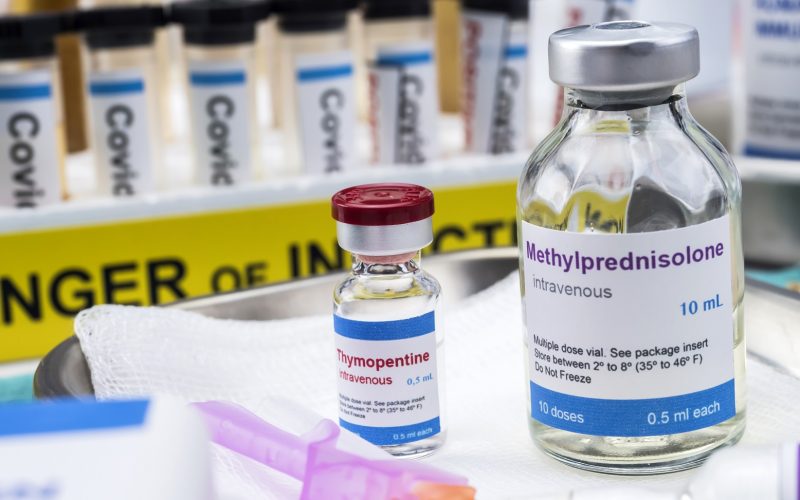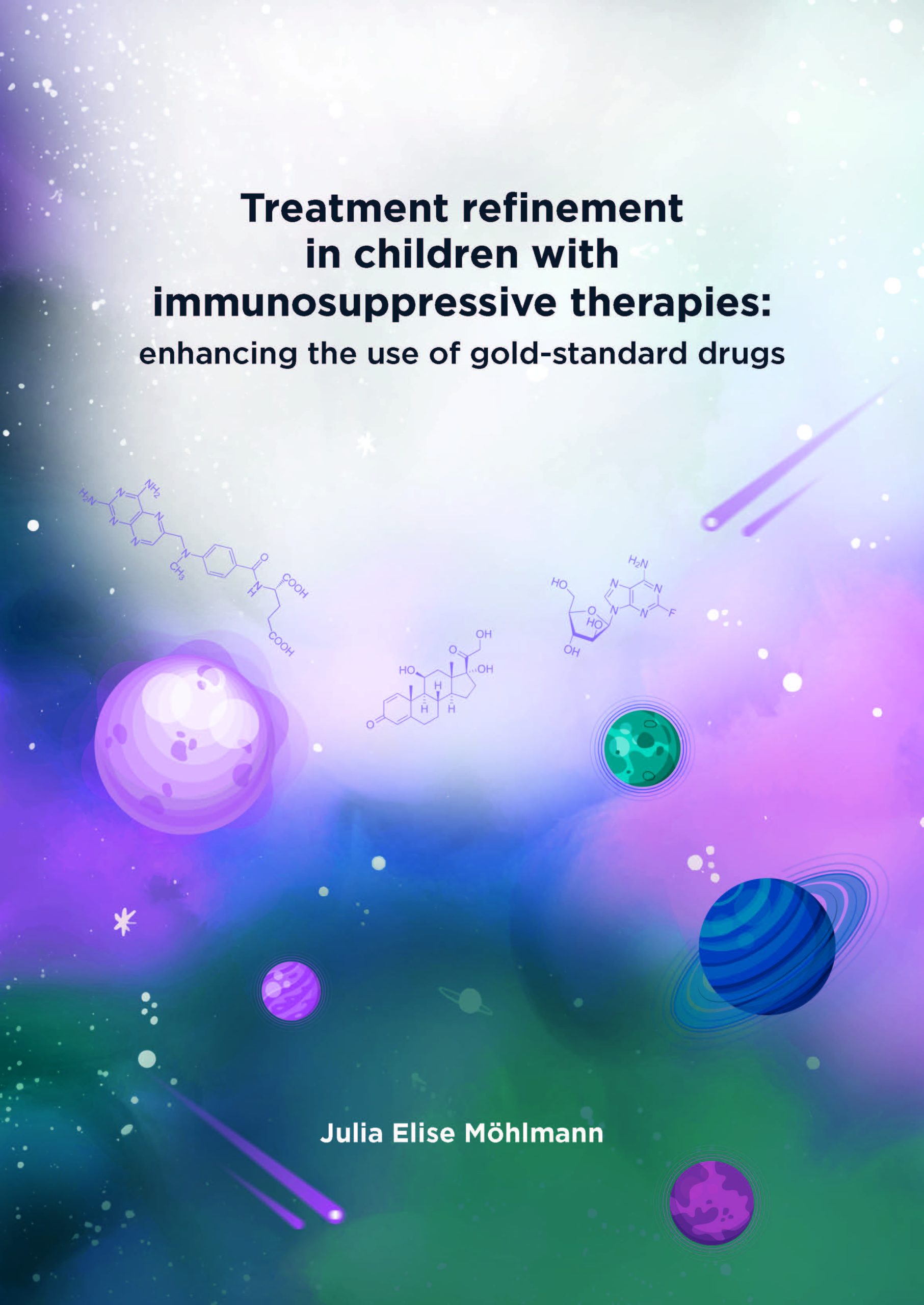The current dosing strategy of immunosuppressants in children needs to be evaluated and refined, since standard dosing regimens result in suboptimal treatment in a part of patients. In addition, more pharmacokinetic-pharmacodynamic research in children is urgently needed, as pediatric data is generally underrepresented in studies. This would contribute to the ultimate goal: lower toxicity, better efficacy and optimized adherence. These were the main take-aways of the PhD research by clinical pharmacist Julia Möhlmann (UMC Utrecht).
Data of (young) children is generally underrepresented in clinical research on autoimmune and systemic inflammatory diseases, with dosing regimens of drugs that are often extrapolated from adults. Outcomes typically show high pharmacokinetic variability, which potentially results in suboptimal treatment, such as the occurrence of adverse effects, insufficient efficacy and adherence issues. For immunosuppressive treatment with gold-standard drugs (such as corticosteroids or methotrexate) in children, there remains considerable room for improvement. Refinement of current dosing strategies could directly or indirectly reduce toxicity, optimize adherence and improve efficacy in children with autoimmune diseases and in the setting of pediatric hematopoietic cell transplantation (HCT). In her PhD thesis, Julia Möhlmann, PharmD (Department of Clinical Pharmacy, UMC Utrecht) therefore aimed to optimize drug treatment in children that need immunosuppression due to immune diseases or HCT.
Julia Möhlmann examined the pharmacokinetics (PK) and pharmacodynamics (PD) of several immunosuppressive therapies. She particularly focused on prednisolone in children, since a literature review by Julia and her colleagues had revealed a knowledge gap regarding the relationship between corticosteroid PK and efficacy/toxicity in pediatric and adult patients, calling for more robust research. Two ongoing cohort studies, CARPE DIEM (coordinated by UMC Utrecht) and PIKACHU (coordinated by Princess Máxima Center for Pediatric Oncology) were used to collect PK-PD data in pediatric autoimmune disease patients and those undergoing HCT.
Her research described the development and validation of a liquid chromatography–tandem mass spectrometry (LC-MS/MS) assay to quantify (free) prednisolone levels and create a population PK model. Using this model in the PIKACHU study, it was found that the standard body weight (BW)-based dosing of prednisolone may be inadequate for younger children (particularly in those under 30 kg) to prevent graft-versus-host disease (GvHD) after HCT. In the CARPE DIEM study, Julia explored corticosteroid-related neuropsychiatric adverse effects (AEs), such as insomnia, irritability, anxiety or depression, in children with autoimmune diseases. The investigators revealed a substantial presence of neuropsychiatric AEs, but did not find demonstrable associations between prednisolone exposure and neuropsychiatric AEs, in an interim analysis in 16 patients.
Möhlmann also addressed adherence to low-dose methotrexate (MTX) in patients with juvenile idiopathic arthritis. Drug adherence – as determined using an LC/MS-MS assay to quantify plasma samples – was 88 percent shortly after start of treatment and decreased to 77 percent after one year of treatment, with teenagers being more at risk for non-adherence. Finally, she discussed overexposure to fludarabine in infants undergoing HCT and the need for optimized dosing strategies in young children to avoid complications.
“My thesis shows that current dosing strategies of gold-standard immunosuppressants in children need to be evaluated and refined, since standard dosing regimens result in suboptimal treatment in a part of our patients. In addition, more PK-PD research in children is urgently needed, as pediatric data is often underrepresented in studies.”
Julia Möhlmann concluded: “My thesis shows that current dosing strategies of gold-standard immunosuppressants in children need to be evaluated and refined, since standard dosing regimens result in suboptimal treatment in a part of our patients. In addition, more PK-PD research in children is urgently needed, as pediatric data is often underrepresented in studies. This would contribute to the ultimate goal: reduce toxicity, improve efficacy and optimize adherence in children treated with immunosuppressive therapies.”
Julia Elise Möhlmann, MSc (1993, Dieren) defended her PhD thesis on July 10, 2025 at Utrecht University. The title of the thesis was “Treatment refinement in children with immunosuppressive therapies: enhancing the use of gold-standard drugs”. Supervisor was prof. Alwin Huitema, PharmD, PhD (Department of Clinical Pharmacy, UMC Utrecht). Co-supervisors were Caroline Lindemans MD, PhD (Center for Translational Immunology and Department of Pediatrics, UMC Utrecht) and Matthijs van Luin, PharmD, PhD (Department of Clinical Pharmacy, UMC Utrecht). Julia Möhlmann works as a hospital pharmacist at Horacio Oduber Hospital in Aruba.

